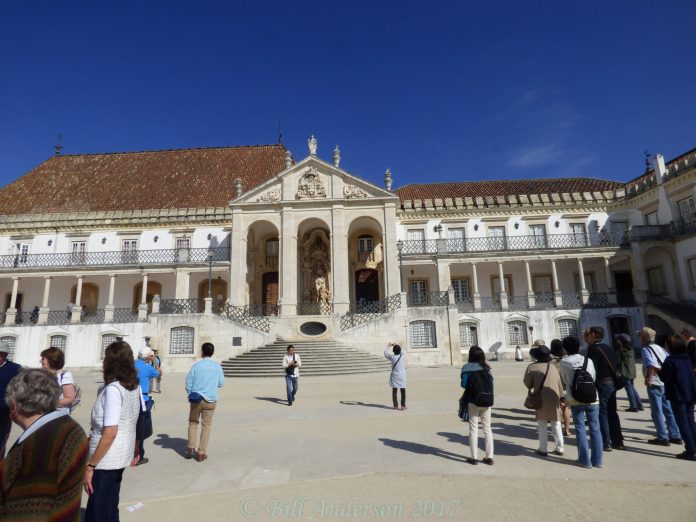Erasmus should triple its funds, allow more people to take part and adapt its grants to the needs of the participants.
The Culture and Education Committee approved on Wednesday the next generation Erasmus programme, proposing a detailed set of measures to lift all economic, social, cultural barriers and allow more people to take part in different learning mobility schemes.
National strategies to foster participation of people with fewer opportunities
MEPs ask the European Commission and national Erasmus agencies to draft a European inclusion framework and develop national inclusion strategies. These measures could include adapting funding to the needs of participants and, particularly, financial support for mobility, adjusting monthly grants and a regular review of living and subsistence costs.
Special support for mobility for people with fewer opportunities should also be foreseen and include language training, administrative support or e-learning opportunities.
Focus on people with fewer opportunities
The new proposed “small-scale partnerships” strand would allow organisations with little experience or small operational capacity to participate in the programme, especially grassroots organisations or organisations working directly with disadvantaged people.
New Erasmus actions
MEPs also re-allocate the budget to different elements in the programme, offering pre-school and early education staff, young athletes and sport coaches the option to participate in mobility schemes. Vocational education exchanges, especially in border regions, are also prioritised in the new programme, with its budget also increased in the approved text.
Co-funding from other European programmes
MEPs propose more synergies with other European funding programmes, so that co-funding could be used either to complement grants, transport, living costs for disadvantaged learners being adjusted as needed or to finance new projects.
EPP: Erasmus+ reinforces the sense of European identity
Erasmus+ is one of the most popular EU programmes as it reinforces the sense of European identity, increases employability and supports the personal and professional development of young and older Europeans, says EPP Group.
“European programmes need to be equally accessible to all European citizens, regardless of their socio-economic background. My first goal is to make Erasmus+ the Number One programme of inclusiveness. We made the programme much more fair and inclusive. Parliament will have to fight strongly to triple the overall budget. That’s why it is extremely important to have strong support from other political group,” said rapporteur Milan Zver.
The new Erasmus is, on the one hand, bringing big new initiatives like the European Universities Network, the Centres of Vocational Excellence and the DiscoverEU activities (based on the successful Interrail pilot project). On the other hand, it will improve and upgrade existing components of the programme: improved language learning opportunities, facilitated mobility for school children, mobility for sports coaches and young athletes, more focus on small-scale partnerships, and virtual and blended learning.
Triple budget for the 2021-2027 period
“We have ensured that the funds for higher education mobility and the Jean Monnet Programme are not cut. At the same time, we have increased the budgets for VET, adult education, schools and sports. We also reinforced the idea of European added value. We secured the traditional parts of Erasmus+ whilst refusing some proposals to limit DiscoverEU and the EU Universities programmes before these initiatives even truly start”, he added.
S&Ds proposes to triple financing
This flagship initiative to unite Europeans deserves proper funding, therefore the S&Ds proposes to triple its financing from €15 billion of the period 2014-2020 to €45 billion in the 2021-2027 period. S&Ds also call for more financial support in particular for adult education and vocational training.
“The Commission’s proposal to double the budget is not enough. Only by tripling the budget will we be able to deliver our promises to make the new Erasmus+ more inclusive and fully accessible. We also demand Europe-wide strategy to foster inclusiveness. So far, the Erasmus programme has benefitted only a few, but everyone should have the same opportunities. The new Erasmus+ must be truly open for everyone and encourage the participation of everyone in the society. At the forefront of S&Ds goals is non-discriminatory and barrier-free access to Erasmus+, including more participation of people with few opportunities, people with disabilities and special needs,” said Petra Kammerevert, chair of the culture and education committee and S&D negotiator on this file.
“Erasmus is the most successful EU programme and it must keep growing. Over the last seven years it allowed for four million people to benefit from learning and mobility opportunities, but we expect that this number will grow to at least 12 million people in the next seven years. We also want to enlarge the scope: we believe that lifelong learning must stay at the heart. So we ask for the reinforcement of all components of the lifelong strategy within Erasmus+. Pre-school, early-learning teachers, as well as young athletes, should be able to benefit from the mobility activities, which we want to further support through the new European Student Card, a digital tool to create the status of ‘European students’, helping in the recognition of diplomas and curricula and in the access to various facilities,” added S&D spokesperson on culture and education, Silvia Costa.
More efforts on implementing the principle of inclusion says ECR
The EU’s student exchange programme Erasmus is exactly the type of funding the EU budget should be providing, said ECR MEP Remo Sernagiotto after the Parliament’s Culture Committee voted today on its next iteration of the programme.
Speaking after the vote Sernagiotto, who followed the proposals for the ECR Group, said:
“Erasmus is arguably one of the EU’s most visible programmes and it’s important we get it right. We need to keep pushing for better geographical distribution and also focus more efforts on implementing the principle of inclusion to ensure that everyone has the same opportunities. Connecting students and institutions across borders clearly represents genuine EU added value and Erasmus is the type of programme the budget should be backing.”

